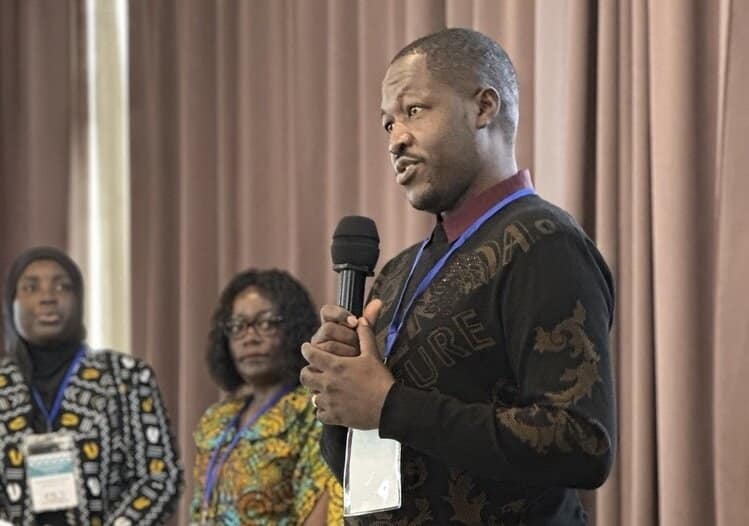Locally known as Tupange (“Let’s Plan”), the Kenya Urban Reproductive Health Initiative has spent the last three years empowering youth living in urban slums to take control of their lives and build a brighter future with family planning (FP).
Tupange’s work was recently featured by a major news organization, Public Radio International (PRI), in a series called Family Choices: Fertility and Infertility in Africa. Part II of the series highlights the activities that the Johns Hopkins Bloomberg School of Public Health Center for Communication Programs (JHU∙CCP) organizes within Tupange to target men, such as holding soccer tournaments and bicycle races, and supporting the work of male health educators who go to workplaces and community centers to talk to men about contraception and family size.
“We’ve seen that it has more impact,” says Peter Kagwe, a project manager for Tupange. “[Men] want to see one of their own.”
Kagwe points out that the male health workers talk personally about the benefits of Family Planning (FP) while appealing to a man’s sense of pride. They encourage men to take control over how many children the family has by using contraception or getting a vasectomy.
Although changing men’s attitudes about FP may be a challenge, the health workers are seeing progress. One health worker, Mark Mwangi, points out that more men are showing up to use FP services. “Especially the young ones that accompany their wives or their partners,” he says. Mwangi points out that younger men are more willing to talk about birth control.
Tupange is assisting the government and private health providers to provide a full range of FP services to young people in Kenya. By using innovative demand creation approaches, it hopes to put an end to misconceptions about contraception and make FP a social norm among youth.
Tupange is led by Jhpiego in partnership with JHU∙CCP, National Council for Population and Development, Marie Stopes Kenya and Pharm Access Africa Ltd.
Read the full series on PRI’s Family Choices: Fertility and Infertility in Africa.
Learn more about Tupange.





